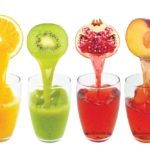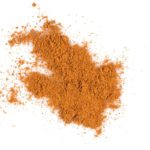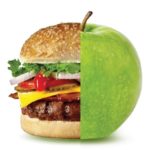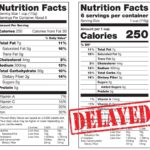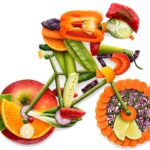
Natalie Digate Muth, MD, MPH, RD
Natalie Digate Muth, MD, MPH, RD
Article Archive
Because self-monitoring of dietary intake is critical to achieving weight and nutrition goals, demand is high for easy-to-use apps that make food tracking easier, help users interpret the results, and use data to set goals and develop meal plans. FitGenie is an innovative app that uses artificial intelligence to give people their own “nutritionist” that tailors meal plans and recommendations based on individual factors, according to the popular technology blog TechCrunch. And more apps are likely to follow.
Read MoreJust what the wellness community needed—yet another study questioning what we thought we knew about nutrition and health.
When results of the massive, multicontinent “PURE” (Prospective Urban Rural Epidemiology) nutrition study were published, headlines blared:
When you first start trying to lose weight, the math is straightforward: To lose 1 pound, create a 3,500-calorie deficit by eating less and moving more. But as the weight comes off, the body’s metabolism slows as it tries to maintain a “set point” weight, and the math stops working. People need a greater caloric deficit to keep losing weight. And for most people, the weight creeps back up over time.
Read MoreWant to experience the tender deliciousness of a cut of meat or fish from a high-end restaurant without leaving your home or laboring in the kitchen for hours? If so, sous vide (pronounced sue-veed) cooking is right for you. For anywhere from under $100 to $300 for the sous vide precision cooker, plus a few dollars for plastic freezer bags and food cost, you can have a gourmet meal on the table in a couple of hours, with mere minutes spent in preparation.
Read MoreAs the gluten-free diet fad winds down, a “lectin-free” diet may become the next big trend. Fueling interest is a new book called The Plant Paradox by Steven R. Gundry (Harper Wave 2017), which claims that lectins in whole grains, legumes, nightshade vegetables (tomato, pepper, eggplant, potatoes), fruit, dairy and eggs are the enemy of anyone trying to lose weight and/or optimize health, according to a report on the Food Insight website.
Read MoreMore than 75% of food-related television ads that kids see promote high-calorie, unhealthy foods and drinks, according to a UConn Rudd Center study published in June. While exposure to such ads has generally declined since a 2007 self-regulation initiative aimed at reducing advertising of unhealthy food targeting kids, children are still seeing many more ads for candy, sugary drinks and fast-food restaurants than they are for healthy foods. This study looked only at television advertising.
Read MoreThe popularity of home-delivery meal kits is on the rise, at least in part because of a hot startup economy and increasing consumer interest in cooking and eating food at home (though many still lack the time or know-how to do it).
Read MoreA presidential advisory from the American Heart Association released in June concluded strongly that lowering intake of saturated fat and replacing it with unsaturated fats—especially polyunsaturated ones—reduces cardiovascular disease rates. Studies indicate that this change would lower CVD rates by 30%, similar to the drop achieved by ubiquitous statin medications. Replacing saturated fats with polyunsaturated fats lowers levels of “bad” low-density lipoprotein cholesterol and triglycerides. Fat composition of commonly used oils is shown in the chart.
Read MoreEverybody should eat a diet high in fruits and vegetables, which are rich in fiber, vitamins and minerals—nutrients associated with improved health and longevity. And it’s tempting to believe these benefits extend to 100% fruit juice.
Read MoreVegetable consumption is notoriously low: Just 13% of adults and about 5% of children eat the recommended servings of vegetables per day. Studies have pointed to one way to get kids to eat more veggies: giving vegetables cool names like “x-ray vision carrots” and “power punch broccoli.” A study published by JAMA Internal Medicine in June found that the tactic was equally effective in adults when vegetables were given “indulgent” descriptions such as “dynamite chili and tangy lime-seasoned beets” or “sweet sizzlin’ green beans and crispy shallots.”
Read MoreEmotional Eating: Parents Pass It On to Their Kids
A tendency to eat for emotional reasons—such as when worried, annoyed or anxious—is an important contributor to excess weight gain. While emotional eating is a known cause of obesity, what turns people into emotional eaters is not as well understood.
A small 10-week pilot study found that patients who received a fruit and vegetable “prescription” along with $30 tokens per week to spend on fruits and vegetables at a local farmer’s market reduced weight, waist circumference and cholesterol levels compared with a control group given a $30 gas card per week, reports the Cape Cod Times.
Read MoreWith rates of prediabetes and diabetes climbing, there is great interest in inexpensive interventions that can help to control blood sugar levels. Studies suggest that people who consume 1 g of cinnamon (just under ½ teaspoon) per day have a blood sugar reduction in line with the decrease from prescription drugs, Time magazine reported in April. How
cinnamon exerts these effects is an area of active investigation. Add cinnamon to oatmeal, yogurt, tea and applesauce to boost intake.
People striving to lose weight have long been wooed by diet trends, hoping a new discovery or novel program will be their path to achieving a goal weight. Usually, research into the effectiveness of these diets lags behind media attention and public interest.
True to form, that has been the case with the alternate-day fast, a popular diet trend
that features a day of fasting for each day of eat-whatever-you-want “feasting.”
Drinking light-to-moderate quantities of wine, beer or some other alcoholic beverage (one drink per day max for women and two for men) may help stave off cardiovascular disease, the leading killer in the U.S., but there’s a downside: increased breast cancer risk for women.
Read MoreThe Food and Drug Administration (FDA) and U.S. Department of Agriculture (USDA) have put the brakes on multiple Obama administration regulations intended to help consumers make better nutrition choices.
Read MoreIn the much-hyped Breaking2 event last spring, Nike®-sponsored elite marathoners tried to run the fastest-ever marathon, breaking the 2-hour threshold. Achieving such a feat—a 4:34-per-mile pace for 26.2 miles—would require extraordinary speed and stamina and exquisite attention to fueling and nutrition. Ultimately, Kenyan Eliud Kipchoge finished the Nike event in 2:00:25, a sliver short of his goal but still in record time—at a 4:36 pace!
Read MoreParents seem to realize their kids need to eat better—but they're not doing much about it.
A recent national poll of 1,767 parents of kids aged 4–18, conducted by C.S. Mott Children"s Hospital at the University of Michigan, Ann Arbor, found that while 97% of the grownups believed childhood eating habits have a lifelong impact on health, only 1 in 6 of them felt that their child's diet was very healthy.
Send your responses to Sandy Todd Webster at swebster@ideafit.com.
Read MoreHealth experts have long agreed that whole grains are much better for us than heavily processed, or refined, grains. Now a new study suggests that eating whole grains can help with weight loss, too.
Read MoreAmericans waste about 8 million pounds of food each year. What if we could easily reduce that—and put nearly $30 million back into people's pockets? Ditching expiration‐date labels on foods offers a promising start.
Read More







